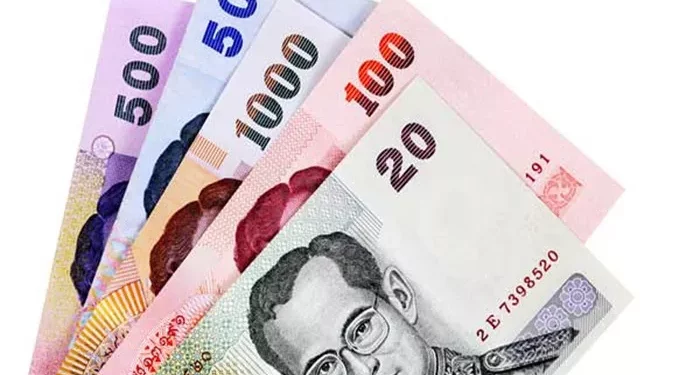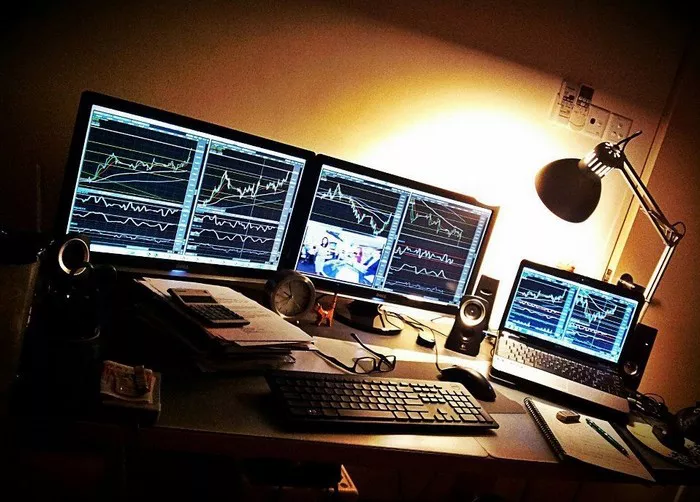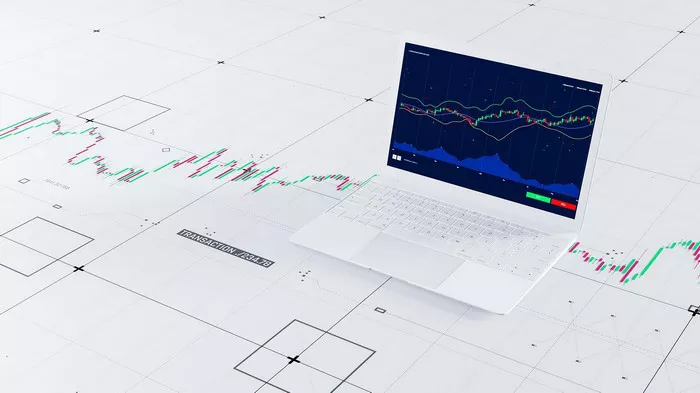In the world of international finance and travel, currency exchange is a common necessity. If you’re dealing with Australian Dollars (AUD) and need to convert them into Thai Baht (THB), perhaps for a holiday in Thailand, business transactions, or investment purposes, it’s crucial to know the best places to make this exchange. There are several options available, each with its own features, advantages, and drawbacks. Understanding these can help you make a more informed decision and potentially save money in the process. In this article, we’ll explore in detail the different locations and methods where you can exchange AUD to Baht, how they work, and what you should consider when choosing the right option for your specific situation.
Banks
1. Australian Banks
Many Australian banks offer currency exchange services for their customers. Banks like Commonwealth Bank, Westpac, and ANZ have numerous branches across Australia. When you visit one of these banks to exchange AUD to Baht, you can expect a certain level of professionalism and security. Banks are highly regulated financial institutions, which means there are strict guidelines in place for handling currency exchanges.
However, when it comes to exchange rates, Australian banks may not always provide the most competitive offers. They usually apply a margin to the market exchange rate to make a profit. For instance, if the current market rate is 1 AUD equal to 25 THB, a bank might offer you around 23 THB for 1 AUD. Additionally, there are often fees associated with the exchange. Some banks charge a flat fee per transaction, regardless of the amount you’re exchanging. Others might calculate the fee as a percentage of the total sum. It’s important to check with your specific bank beforehand to understand exactly what these costs will be.
Moreover, the process at a bank can sometimes be time-consuming. You might need to fill out forms, provide identification, and wait in line. But on the plus side, if you have an account with the bank and need to make a large exchange, they may be able to assist you more effectively and offer some advice on managing your currency conversion.
2. Thai Banks
Once you arrive in Thailand, Thai banks such as Bangkok Bank, Kasikornbank, and Siam Commercial Bank can be considered for exchanging AUD to Baht. These banks are well-established in the local financial system and can provide a reliable service.
The exchange rates at Thai banks can vary. They are influenced by factors like the bank’s internal policies, the amount of currency you want to exchange, and the current market conditions. Some banks may offer better rates for larger transactions. However, similar to Australian banks, there will likely be fees involved. You may need to inquire about whether there are any specific requirements for non-residents to exchange currency and what the fee structure is like. In some cases, you might need to open a temporary account with the bank to complete the exchange, depending on the amount and the bank’s procedures.
3. International Banks
International banks with a presence in both Australia and Thailand, like HSBC and Citibank, can also facilitate AUD to Baht exchanges. These banks have the advantage of a global network and can handle cross-border transactions relatively smoothly.
If you’re an existing customer of an international bank, it can be convenient to use their services. For example, if you have an account with HSBC in Australia and travel to Thailand where HSBC has branches, you can access your account and make the currency exchange there. However, international banks also have their own fee schedules and exchange rate markups. Sometimes, these markups can be higher than what specialized currency exchange providers offer, so it’s important to compare and understand the costs involved before making a decision.
Airport Exchange Counters
1. In Australia
At major Australian airports such as Sydney Airport, Melbourne Airport, and Brisbane Airport, you’ll find currency exchange counters. These can seem like a convenient option if you’re about to board a flight to Thailand and suddenly realize you need to exchange some AUD to Baht.
The staff at these counters are usually available during the airport’s operating hours and can quickly process your exchange. But there’s a significant downside. Airport exchange counters typically offer less favorable exchange rates compared to other places. The reason is that they have higher operating costs due to their prime airport locations. They also know that many travelers are in a rush and might not take the time to compare rates elsewhere. So, you could end up getting a much lower rate than what you could find at a bank in the city center. On top of that, they may charge additional fees, which further reduces the value of your exchange.
2. In Thailand
Similarly, in Thailand’s major airports like Suvarnabhumi Airport in Bangkok and Phuket International Airport, there are currency exchange facilities. When you first arrive in Thailand and need some immediate cash in Baht, these counters can be handy. However, just like in Australia, be prepared for relatively poor exchange rates and potentially higher fees. It’s advisable to only exchange a small amount at the airport to cover your immediate expenses and then look for better options once you’ve left the airport and are in the city.
Currency Exchange Offices
1. In Australia
There are numerous currency exchange offices located in city centers, tourist areas, and shopping districts across Australia. These offices are often specialized in currency exchange and may offer a wider range of currencies compared to some banks. They can be a good alternative if you’re looking for more competitive rates.
Some well-known currency exchange chains in Australia, like Travelex, have multiple locations and often advertise competitive exchange rates. But it’s important to do your research and compare rates between different offices. They may also have different fee structures. Some might offer commission-free exchanges but make up for it with less favorable rates, while others could charge a flat fee or a percentage-based fee. You can usually check their rates online or call them in advance to get an idea before visiting in person.
2. In Thailand
In Thailand as well, you’ll find many currency exchange offices in popular tourist destinations like Bangkok, Pattaya, and Chiang Mai. These offices are conveniently located near hotels, tourist attractions, and shopping areas.
When choosing a currency exchange office in Thailand, it’s essential to compare rates and fees carefully. Some local offices might have better rates for certain amounts or might be more focused on serving tourists and have slightly higher markups. Reading online reviews or asking for recommendations from other travelers can help you find a reliable and cost-effective option. Also, make sure the office is legitimate and has proper licenses to avoid any potential scams or issues with your exchange.
Online Currency Exchange Platforms
1. How They Work
Online currency exchange platforms have become increasingly popular in recent years. Platforms like TransferWise (now known as Wise) and OFX allow you to exchange AUD to Baht from the comfort of your own home or anywhere with an internet connection.
To use these platforms, you first create an account, provide the necessary identification and banking details, and then place an exchange order. The platform will execute the exchange at the prevailing market rate (usually with a small markup) and transfer the funds to your designated bank account. The process is usually quite straightforward and can be completed in a few simple steps.
2. Advantages and Disadvantages
One of the main advantages of online platforms is the convenience they offer. You can compare rates across different platforms easily and choose the one that gives you the best deal. They also tend to have lower fees compared to traditional banks and some physical exchange offices. For example, they might be able to offer an exchange rate closer to the interbank rate, which is the rate at which banks trade currencies with each other.
However, there are some drawbacks. There may be security concerns as you’re providing sensitive financial information online. It’s crucial to choose a reputable and well-regulated platform to minimize these risks. Additionally, the transfer of funds might take some time depending on the platform and the banks involved. For instance, it could take a few business days for the exchanged Baht to show up in your Thai bank account, which might not be ideal if you need the currency immediately.
Using Credit Cards
1. Exchange Rates and Fees
When you use your credit card to make purchases in Thailand while your account is denominated in AUD, the credit card company will automatically convert the amount from Baht to AUD. The exchange rate used is usually based on the rate at the time of the transaction, but the credit card company will typically add a markup to cover their costs and make a profit. This markup can vary between different credit card providers.
Some credit cards offer more favorable exchange rates and lower fees for international transactions than others. For example, premium travel credit cards may have features like no foreign transaction fees and better exchange rate deals. But it’s important to read the terms and conditions carefully before relying on your credit card for currency exchange. There may also be limits on the amount of foreign currency transactions you can make in a certain period.
2. Convenience and Considerations
Using a credit card can be very convenient, especially for smaller purchases or when you don’t want to carry a lot of cash. It’s widely accepted in many places in Thailand, including hotels, restaurants, and shops. But you need to be aware of the potential costs involved in the currency exchange process. Also, if you’re making large purchases, it’s advisable to check with your credit card company in advance to ensure that the transaction will go through smoothly and that you understand the exchange rate and fee implications.
Conclusion
When it comes to exchanging AUD to Baht, there are multiple options available, each with its own set of pros and cons. Whether you choose to go through a bank, an airport exchange counter, a currency exchange office, an online platform, or use your credit card, it’s essential to consider factors like exchange rates, fees, convenience, and security. By carefully evaluating these aspects and doing some research beforehand, you can make a more informed decision and ensure that you get the best value when converting your Australian Dollars into Thai Baht for your travel, business, or investment needs.
Related topics:





























